Every successful defence begins with a clear plan. With over two decades of experience, we’ve developed a proven four-step case assessment process that guides you from uncertainty to resolution with confidence and clarity.
Before December 2018, “care and control” was treated as a separate legal concept from impaired driving. After the amendments introduced by Bill C-46, the Criminal Code now defines “operation of a conveyance” under section 320.11 as including both actual driving and care or control. This means you can be charged with impaired operation even if you were not driving, as long as the Crown believes you were in care or control of the vehicle.
The law also creates a presumption. Under section 320.35, if you are found in the driver’s seat while impaired, you are presumed to have care and control unless there is credible evidence to the contrary. That presumption can be challenged. We do so by showing that you had no intention to drive, that there was no real risk of the vehicle being put in motion, or that the vehicle was inoperable. Many of our clients were simply sleeping it off, waiting for a ride, or trying to avoid a more dangerous choice.
Care and control allegations often accompany both impaired operation and Over 80 charges. We treat these as layered prosecutions and build layered defences. That includes challenging the officer’s grounds to investigate, reviewing the timing and legality of the roadside demand, analyzing the disclosure for inconsistencies, and filing Charter applications where appropriate. We also assess whether the Crown can actually prove that you were operating the vehicle as defined by the law.
You did the responsible thing. You stayed in your car, waited for a safe option, or tried to sleep it off. Now you are facing a criminal charge even though you were not driving. That can feel unfair, but it is not the end of the story. These charges can be defended. There is a path forward, and we are ready to help you take it.
OUR LEGAL ASSESSMENT PROCESS
1
COMPLIMENTARY ASSESSMENT
This is a full hour-long consultation, not a sales pitch. We take the time to understand you, not just the charge. We’ll talk through what happened, how you're doing, what the court process will look like, the potential outcomes, defence costs, and your most pressing questions. You’ll leave the call with a clear roadmap and the confidence of knowing what happens next.
2
Intake and Set-Dates
Once you’ve hired us, we take over the administrative burden. We’ll obtain all police disclosure and appear at every set-date court appearance on your behalf, so you don’t have to miss work or worry about procedure. Behind the scenes, we’re already reviewing your file and preparing for the real fight ahead.
3
Analysis and Pre-Trials
Our entire team meets to analyze the disclosure, identify viable defences, and research the legal and factual issues in your case. We consult with you before engaging the Crown, either to set a trial date or negotiate a resolution that protects your future. You’re kept in the loop, but we carry the legal weight for you.
4
Hearing Date
This is where it all comes together—either in trial or in resolution. Mr. Avery will be in court beside you, fully prepared to protect your rights and secure the best possible outcome. Whether we’re arguing for an acquittal or negotiating final terms, your case is in the hands of an experienced advocate who knows how to win.
OUR GOOGLE 5 STAR REVIEWS
Powered by







Chris Avery and his team at Avery Law are outstanding. From the start, Chris was straightforward, knowledgeable, and easy to talk to. He... Read more
Mike
20/06/2025






We had an amazing experience working with Chris. From start to finish, they were professional, knowledgeable, and truly dedicated to our case. They... Read more
MS
10/04/2025






Chris Avery and the legal team was highly responsive and non-judgmental, taking the time to explain the process clearly and in easy to... Read more
DR
01/03/2025






I had the privilege of working with Christopher and Erica, and I can confidently say they are a class above the rest. I... Read more
Ccy
02/03/2025






Chris Avery and his legal team recently represented me in defending a legal matter against me. I am extremely happy with the result... Read more
BD
10/10/2023






Mr. Avery whent above and beyond for me and was able to have my charges withdrawn. I highly recommend him to anyone looking... Read more
BH
04/02/2023










